Understanding India-West Asia Dynamics and Arabic Language Certificate Program - March 2025
Description
West Asia has, for decades, stood at the very heart of global politics. The significance of the region is shaped by an intricate web of resources, security dilemmas, and geopolitical relevance. The region, scarred by years of turmoil and suffering, bears witness to indigenous struggles that reverberate far beyond the borders, affecting both regional and global stability. The enduring crises in West Asia are not merely political or economic but also, deeply humanitarian in nature. Fuelled by unresolved disputes, sectarianism, fierce rivalries, and simmering tensions among regional and global powers, this situation creates a landscape of complexity and political, economic and social uncertainty. West Asia is an arena fraught with profound challenges, yet undeniably crucial to global geopolitics. The events of 7th October 2023 have further exacerbated an already complicated situation. The recent proposal by the Trump administration also threatens the fragile ceasefire in Gaza, and is liable to create further instability.
Sectarianism remains one of the most contentious issues. The Shia-Sunni ideological rivalry that began during the Cold war continues to occupy centre-stage in the geopolitical polemic. The rising sectarian strife in the region taken up by a vortex of both State and non-State actors desiring to further their own objectives renders the situation even more untenable.
For India, West Asia has been a strategically crucial region for a long period of time. As mentioned by External Affairs Minister, Dr. S Jaishankar at the Raisina Middle East, Abu Dhabi dialogue (January 28, 2025), “The history of India and the Middle East are inextricably linked. Whether it is commerce or connectivity, ideas and beliefs, or customs and traditions, we have actually seen an interplay over centuries. Interestingly, although India has influenced its extended neighbourhood in all directions, the one to our West has had the deepest impact on its own society. However, after independence, our economic development model resulted in a perceptible dilution of linkages with the world, one felt most deeply in our immediate proximity”.
In the post-colonial era, countries of this region have further strengthened their relationship with India in different areas of cooperation. West Asia has always been an important waystation for India’s land and sea linkage with Europe and the wider world. In the contemporary global politico-economic scenario, the most significant project is the India-Middle East Economic Corridor (IMEC). This is a project which has been proposed as a response to China’s Belt and Road Initiative (BRI). West Asia also faces increased strategic competition for trade and connectivity. This has serious implications not only for West Asia but also for the wider world. Additionally, the presence and interests of major powers like United States and Russia in West Asia have been one of the key factors in shaping India’s approach towards the region.
Beyond the issue of connectivity, India has also forged an important economic partnership with players from West Asia, one spanning a wide range of economic sectors. A large proportion of India’s trade now takes place with the GCC countries. In FY 2022-23, the region accounted for 15.8% of India’s total trade, surpassing the European Union. A key component of the economic relationship is in the field of energy security. Saudi Arabia, the UAE, and Qatar remain crucial suppliers of both crude oil and natural gas to India, with a recent $78 billion deal extending India’s gas imports from Qatar by 20 years, underscoring the long-term importance of Gulf energy supplies.
The security aspect is also a critical component of the relationship between India and like-minded countries in West Asia. All these countries face the similar threat of global terrorism. These States have taken a strong stance against fundamentalism, radicalisation and extremism in the sub-continent and are collaborating with India to curb the funding of terrorism coming from West Asia. India and Saudi Arabia have echoed similar concerns on countering radicalisation and the importance of military diplomacy and intelligence sharing to strengthen counter-terrorism cooperation.
Other factors destabilising the region are events such as the Arab Spring and its fallout. While discussing the West Asia-India dynamic, it is also important to take a closer look at India’s relationship with other players in the region such as Turkey, Egypt, Sudan and Libya. Even though peripheral to India, these countries remain important for the wider stability of West Asia. Conflicts in countries of West Asia have both direct and indirect impacts on India and the subcontinent. For example, the conflict in Yemen has disrupted the Red Sea trade when the Houthis launched their attacks on ships passing through this area. Moreover, civil wars in Iraq and Syria have had a trickle-down impact on India’s security and the safety of its diaspora. The Indian diaspora, engaged in both blue collar and white collar jobs, constitutes a major component of the population of West Asia. The economic dividends accrued from this workforce are beneficial to both nations.
An important component of India’s strategic partnerships is its non-aligned stand. This is well reflected in our mutually beneficial engagements with all regional players in West Asia. Another hallmark of our diplomacy rests in the measured stand taken on geopolitical upheavals in the region, one of which is the ongoing Israel-Palestine conflict. A similar stand is seen in the case of India’s nuanced partnership with Iran and Saudi Arabia.
The ten-day certificate program will look at all these issues in detail. It will analyse these issues both from an Indian and a global perspective. The program will also include a basic introduction to Arabic language and its cultural context. Speakers from a variety of backgrounds will take part in this program. They will be both from a civilian and security background and will include scholars with specialisation in particular areas of West Asia. Along with this, former diplomats who have hands-on experience of West Asia will also offer their valuable expertise through this program. The program will be held from 25th March, 2025 to 3rd April, 2025. Anyone with a basic interest in West Asia is welcome to participate in this program. At the end of the program, participants will be given a Certificate of participation.
Important Information
The programme will be conducted in online mode & E-Certificate will be provided.
Programme Structure:
Two online lecture sessions of three hours each day, divided into two parts.
What you'll learn
Comprehending the increasing security cooperation, trade, and other interactions between India and the major nations in West Asia and the necessity for a comprehensive strategy to address present barriers to continued and enhanced collaboration.
To Examine the politico-security dynamics of West Asia and the Persian Gulf after the October 7th Attacks and its impact on India's relationship with West Asia.
To examine the contemporary trends in terrorism in West Asia and to study radicalisation, Shia-Sunni conflict, and usage of disruptive new technology. The certificate program will also deal with India's internal security implications of having transnational linkages with non-state actors in West Asia.
To explore India's evolving strategic partnership in West Asia with a focus on India's engagement with Israel and Saudi Arabia.
To understand how India balances its relations with the different powers in West Asia. Here special focus will be given on two aspects. First is India's neutral stance in its ties with India and the Arab world and how this affects India's position with both these entities. Second is India's balanced approach to the Israel-Palestine issue even after developing close ties with Israel.
Fundamentals of Arabic Language
To analyse governmental and non-governmental relationships between India and West Asia and the importance of the Indian diaspora in deepening the India-West Asia relationship.
Evaluating the present status of India-West Asia cooperation on counter-terrorism. The alliance between India and the Gulf Arab countries in this regard is critical.
To evaluate India's connectivity projects with West Asia, for example, the India-Middle East-Europe Economic Corridor (IMEC) and the International North-South Transit Corridor (INSTC).
To understand sectarianism dynamics of West Asia and its socio-religious implication on India.
To analyse India's relationship with GCC countries and India's diplomatic engagement with other Intra-regional partners in West Asia.
Requirements
Course Content
Semester with subjects
 No Semester Founds.
No Semester Founds.
Experts
Safwan Yahya Al-Showaiter is a Subject Matter Specialist (Arabic) at the School of International Cooperation, Security, and Strategic Languages (SICSSL) since August 2023. Currently, Dr. Safwan has a Ph.D. in English Literature from EFL University, Hyderabad (2017-2023). He has completed his M.A. (English Literature) from EFL-University, Hyderabad (2012). He has a total experience of five years in teaching language as a foreign and second language at both school and university levels. Mr. Safwan is a Yemeni national research scholar. He has worked as a translator (from Arabic to English and vice versa), freelancer (Arabic/English), and English Language Teacher. At the same time, he is passionate about creative writing (Arabic), and content writing (Arabic/English). His areas of interest are Creative Writing, Translation, and Literary Research. Moreover, he has published a number of academic papers in various Indian Journals and conference proceedings. He is a member of the Yemeni Writer’s Federation since 2010 and a member of the Yemeni Story Club (Al- Maqah). He writes and posts essays and articles frequently on Arab Culture.
Amb. Anil Trigunayat is a member of the Indian Foreign Service. He has served in the Indian Missions in Cote d’Ivoire, Bangladesh, Mongolia, USA, Russia, Sweden and Nigeria, Libya and Jordan. In the Ministry of External Affairs he has worked in the Economic, West Asia and North Africa and Consular Divisions. He also served as Director General/Joint Secretary for the Gulf & Haj Divisions in the Ministry of External Affairs, New Delhi. Thereafter, Mr. Trigunayat worked as Deputy Chief of Mission in the rank of Ambassador in the Embassy of India, Moscow Prior to his superannuation in May 2016, he served as Ambassador of India to Jordan and Libya and High Commissioner to Malta (June 2012 – May 2016). He is a post Graduate in Physics from the Agra/Kumaon University and also studied Russian History, Culture and Language at the Jawaharlal Nehru University, New Delhi. As a visiting fellow he also conducted research work on “WTO and Regional Trading Blocs” at the Oxford University. He is a member of the All India Management Association/Delhi Management Association as well as that of Oxford and Cambridge Society of India and the Association of Indian Diplomats (former Ambassadors). He is also the Honorary Member of the International Trade Council, Brussels.
Talmiz Ahmad is a distinguished diplomat who joined the Indian Foreign Service in 1974. With extensive experience in West Asia, he served as Indian Ambassador to Saudi Arabia, Oman, and the UAE. Recognized for his contributions to Indo-Saudi relations, he received the King Abdul Aziz Medal First Class in 2011. Talmiz Ahmad joined the Indian Foreign Service in 1974. Early in his career, he was posted in a number of West Asian countries such as Kuwait, Iraq and Yemen and later, between 1987-90, he was Consul General in Jeddah. He also held positions in the Indian missions in New York, London and Pretoria. He was the head of the Gulf and Hajj Division in the Ministry of External Affairs in 1998-2000. He served as Indian Ambassador to Saudi Arabia twice (2000-03; 2010-11); Oman (2003-04), and the UAE (2007-10). He was also Additional Secretary for International Cooperation in the Ministry of Petroleum and Natural Gas in 2004-06, and Director General of the Indian Council of World Affairs (ICWA), New Delhi, in 2006-07. In July 2011, the Saudi Government conferred on him the King Abdul Aziz Medal First Class for his contribution to the promotion of Indo–Saudi relations.
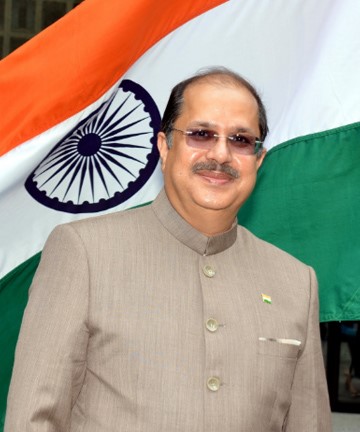
Amb Ausaf Sayeed
Former Secretary to Government of India in the Ministry of External Affairs
Ambassador Dr. Ausaf Sayeed, a former Indian diplomat of the 1989 IFS batch, served as Secretary in the Ministry of External Affairs, handling consular and overseas Indian affairs. He held various diplomatic positions, including Ambassador to Saudi Arabia and Yemen, and High Commissioner to Seychelles and held various diplomatic assignments in Egypt, Saudi Arabia, Qatar, and Denmark. With nearly 34 years of service, he has fostered India's international relationships across multiple domains.
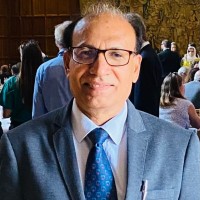
Prof Anisur Rahman
Professor of West Asian Studies, Ex-Director UGC HRDC at Jamia Millia Islamia
Anisur Rahman is a Professor and Director at the UGC-Human Resource Development Centre, Jamia Millia Islamia, with advanced degrees in Economics and Sociology. His research interests focus on South Asian migration, Gulf social demography, and higher education issues, and he has published extensively and presented at numerous international conferences. Additionally, he has delivered over 100 invited talks and is involved in various academic committees and editorial boards.
Dr. Meena Singh Roy is the head, West Asia & Central Asia Centre, Tillotoma Foundation. Prior to Tillotoma foundation, Dr. Roy was a research fellow at Institute for Defence Studies and Analyses (IDSA). Her areas of specialisation are Central Asia and West Asia.. Her books and edited volumes include Emerging Trends in West Asia: Regional and Global Implications (2014), Ideology, Politics and New Security Challenges in West Asia (2018) and Changing Security Paradigm in West Asia: Regional and International Responses (2020).
Fazzur Rahman Siddiqui is a Senior Research Fellow at the Indian Council of World Affairs, specializing in Political Islam and identity politics in the Arab world. He holds an M.Phil. and PhD from JNU, New Delhi, and has authored five books, including “Arab World in Transition” (2022). He focuses on geopolitical issues in the WANA region.
.jpg)
Prof. P.R. Kumaraswamy
Professor, Centre for West Asian Studies, School of International Studies, Jawaharlal Nehru University
He is also the Honorary Director of Middle East Institute, New Delhi and the the author of India’s Israel Policy (Columbia University Press,2010) and Historical Dictionary of the Arab-Israeli Conflict (Scarecrow2015).
.jpg)
Dr. Adil Rasheed
Coordinator, Counter Terrorism Centre Manohar Parrikar Institute for Defence Studies & Analyses (MP-IDSA)
Dr. Adil Rasheed joined MP-IDSA as Research Fellow in August 2016. Before that, he was researcher and political commentator in various international think tanks and media organizations for over 17 years, both in the United Arab Emirates and India. Dr. Rasheed is the author of the books: Political Islam in West Asia and South Asia (2023), Countering the Radical Narrative (2020), and ISIS: Race to Armageddon (2015).
Amb DP Srivastava is a Distinguished Fellow at Vivekananda International Foundation. He was the Indian Ambassador to the Islamic Republic of Iran (2011-15). During his tenure, he led negotiations on Indian Participation in Chabahar Port. In the past, he has served as Indian Ambassador to the Czech Republic, Libya and India’s High Commissioner to Malta. Amb DP Srivastava is a Distinguished Fellow at Vivekananda International Foundation. He was the Indian Ambassador to the Islamic Republic of Iran (2011-15). During his tenure, he led negotiations on Indian Participation in Chabahar Port. In the past, he has served as Indian Ambassador to the Czech Republic, Libya and India’s High Commissioner to Malta. He joined Indian Foreign Services in 1978. After retirement, he served as Senior Advisor to ONGC Videsh Ltd (2015-16). He also served as an Independent Director on the Board of GAIL (2017-20). He negotiated the MOU with Iran for Indian participation in Chabahar Port and has served on the Board of Directors of India Ports Global Ltd, the company under the Shipping Ministry charged with the development of Chabahar Port.
Dr. Waiel S.H. Awwad is a Senior Foreign Journalist based in South Asia with a distinguished career since 1979. He has extensively traveled across South and Southeast Asia, interviewing numerous Asian leaders and providing in-depth coverage of the region. A graduate of Delhi University with an MBBS, he pursued postgraduate studies in journalism and completed various programs in international law, human rights, diplomatic correspondence, and video journalism in Delhi, London, and Dubai.
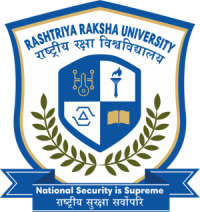
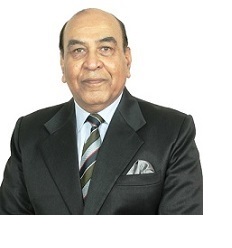
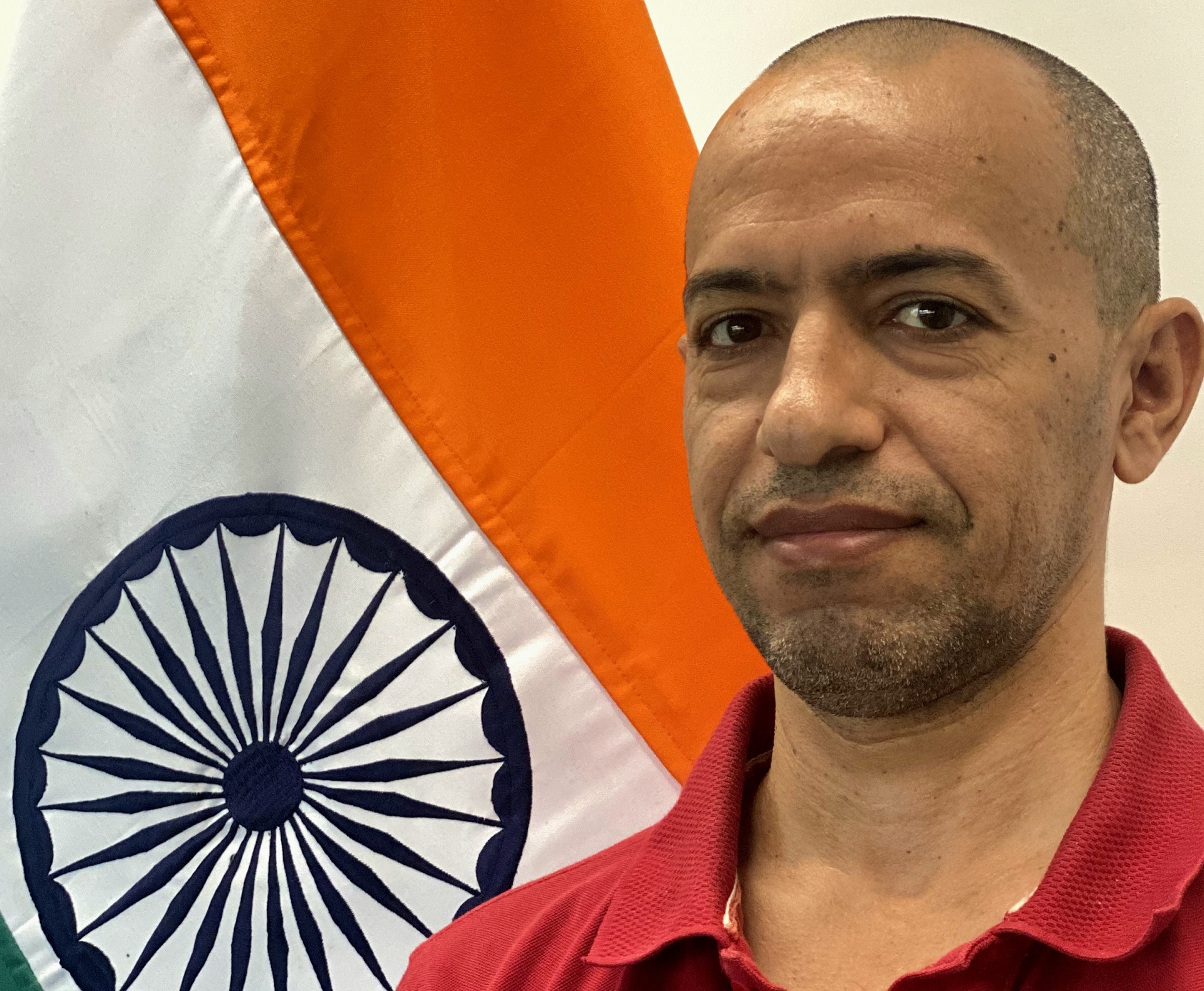
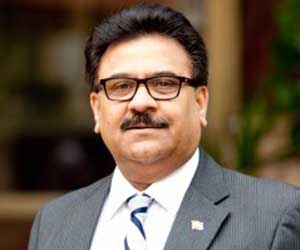
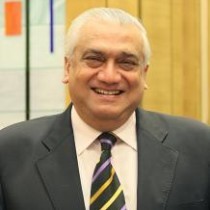
.jpg)
.jpg)
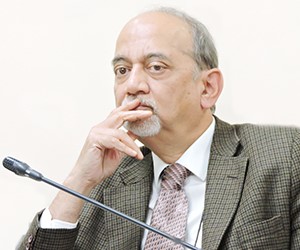
.jpg)
Shubhangi Singh 22 Mar, 2025
Relevance of course
The courses offered by RRU have always been relevant and full of immense knowledge and use. This course content as well promises to deliver expert knowledge on present dynamics of world. Looking forward to this course